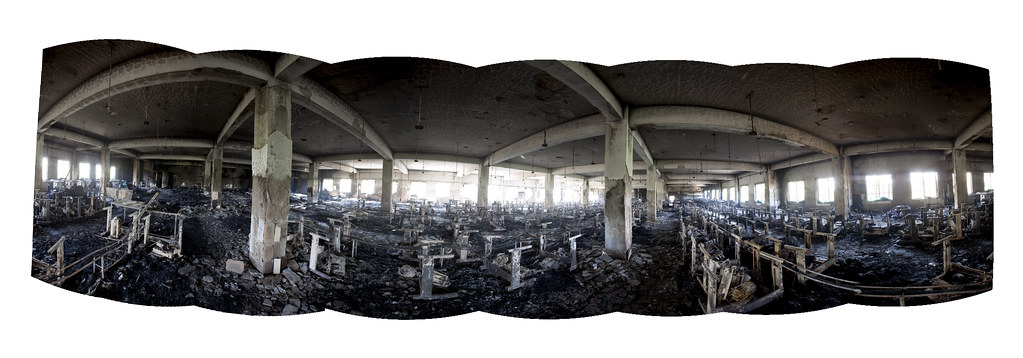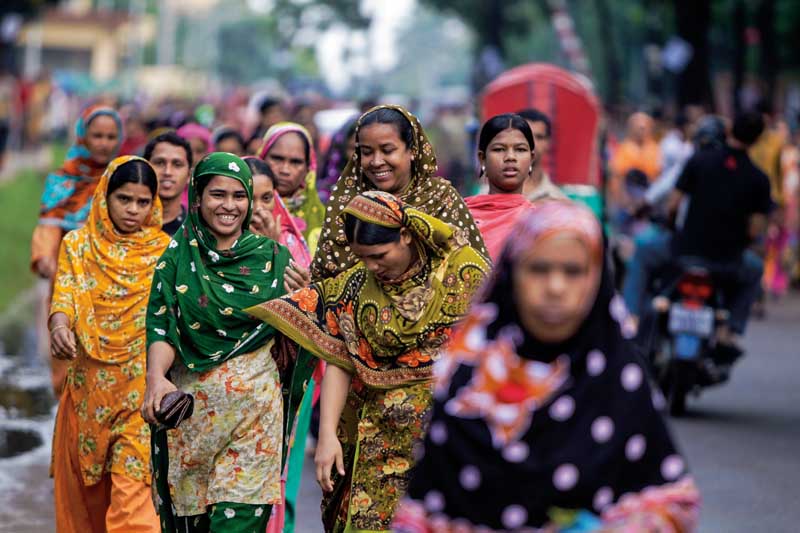I entered the giant graveyard. It was quiet except for my own footsteps but, in my head, I could hear the screams. Rows of blackened sewing machines, still in orderly lines, reinforced the sense that I was looking at tombstones. There were no flowers here. No epitaphs. No mourners.

A fire had raged through the Tazreen Fashions garment factory in Ashulia on 24 November 2012. Workers stationed on the building’s third and fourth floors had rushed to the exits, only to find them locked, a regular practice in many Bangladeshi garment factories. Fires and worker deaths were, sadly, all-too-common. The owners justified the locking of the doors as a ‘security measure’ but workers were effectively prisoners during working hours. As the heat and smoke built up, the panic-stricken labourers, who were unable to break down the iron gates, rushed to the windows and somehow managed to remove the metal grills. It was a long way down, but one by one they jumped. Some screamed with pain as they fell; others were silent. Each landed with a dull thud, their bodies crumpled on the uneven ground below. Possible death was still a better choice than certain death. And some did survive.





